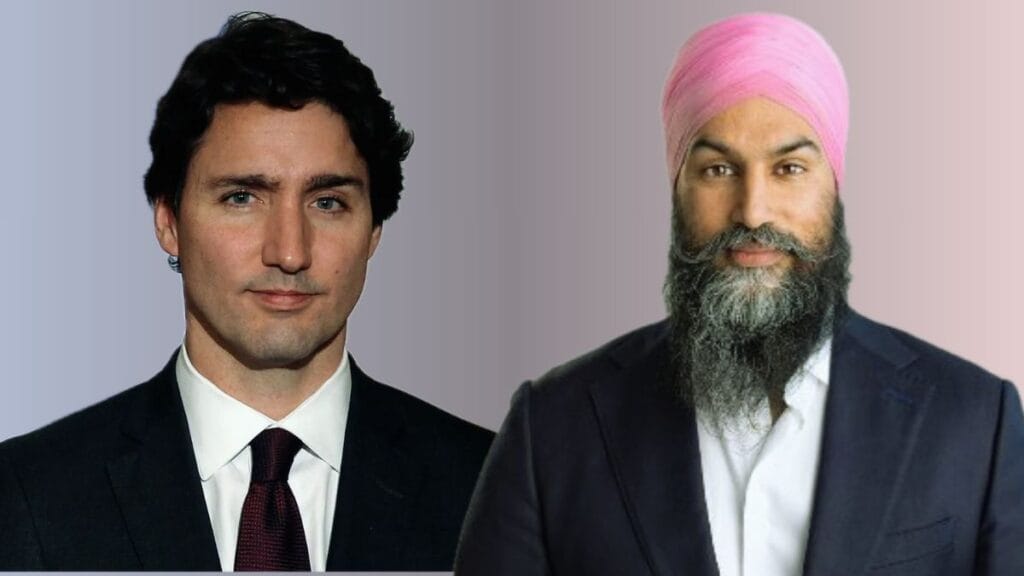Justin Trudeau Faces Political Crisis Amid Calls for Resignation
Canadian Prime Minister Justin Trudeau is confronting one of the most turbulent periods of his political career, facing mounting pressure to resign amid growing dissatisfaction within his Liberal Party. With economic challenges, internal rifts, and strained international relations dominating headlines, Trudeau’s leadership is under intense scrutiny.
Internal Dissent in the Liberal Party
Over the past year, Trudeau’s leadership has been increasingly questioned by members of his own party. Prominent Liberal MPs, including Sean Casey and Ken McDonald, have openly called for Trudeau to step down, expressing dissatisfaction with his policies and leadership style.
Reports indicate that more than 20 Liberal MPs have signed a pledge demanding his resignation.
The departure of Chrystia Freeland as Deputy Prime Minister and Finance Minister in December further exposed fractures within the government. Freeland’s resignation reportedly stemmed from policy disagreements, particularly regarding Trudeau’s economic strategies and his handling of potential U.S. tariffs.
Her parting remarks criticized Trudeau’s “costly political gimmicks,” leaving a sour note and deepening the leadership crisis.
Economic Struggles and Policy Failures
Canada’s economic downturn has exacerbated Trudeau’s political troubles. Rising inflation, housing affordability issues, and stagnating wages have fueled public frustration. Critics argue that Trudeau’s economic policies have failed to address these pressing concerns, leaving many Canadians disillusioned.
The recent losses in two by-elections further underscored the Liberal Party’s vulnerability. Trudeau’s critics have pointed to these defeats as evidence of dwindling public support and a loss of confidence in his leadership.
International Relations and the India Controversy
Adding to Trudeau’s woes is a diplomatic standoff with India. In September 2023, Trudeau accused the Indian government of involvement in the assassination of Khalistani terrorist Hardeep Singh Nijjar. India dismissed the allegations as “absurd,” leading to a sharp deterioration in bilateral relations.
India retaliated by expelling six Canadian diplomats and recalling its envoy to Ottawa. Trudeau’s claims, viewed by many as lacking substantial evidence, have been criticized as an attempt to deflect attention from domestic problems.
Pro-Khalistan activities in Canada, including attacks on Hindu temples, further strained relations, raising questions about Trudeau’s handling of foreign policy.
Opposition Gains Momentum
While Trudeau battles internal dissent, Pierre Poilievre’s Conservative Party has surged in public opinion polls. Poilievre has capitalized on economic frustrations, promising to repeal Trudeau’s carbon tax and address Canada’s housing crisis.
Some polls show the Conservatives leading the Liberals by double digits, further intensifying pressure on Trudeau to step aside.
New Democratic Party (NDP) leader Jagmeet Singh has also signaled his willingness to introduce a motion in Parliament to topple Trudeau’s government when sessions resume on January 27. This move could push Trudeau closer to resignation or force a snap election.
The Search for a Successor
If Trudeau were to resign, the Liberal Party would face formidable challenge selecting a new leader. Potential candidates include Dominic LeBlanc, Melanie Joly, Francois-Philippe Champagne, and Mark Carney.
However, Canada’s Liberal leader selection process involves a special convention, which could take months, leaving the party vulnerable in the lead-up to federal elections later this year.
Interim leaders are ineligible to contest permanent leadership, adding further complications. Without a strong and charismatic leader, the Liberals risk losing momentum against the surging Conservatives.
Trudeau’s Response and Future Prospects
In response to growing criticism, Trudeau has maintained a defiant tone, likening internal party conflicts to family disputes. “Like most families, we find our way through it,” he said in December.
However, his absence from public events and media briefings, while spending time at a ski resort, has drawn further criticism for perceived indifference.
Freeland’s parting remarks and growing dissent within the party highlight a stark contrast to Trudeau’s optimism. Whether his efforts to weather the storm will succeed remains uncertain.
A Pivotal Moment for Canada’s Future
Justin Trudeau’s political troubles come at a critical juncture for Canada. Facing economic instability, internal discord, and diplomatic controversies, Trudeau’s leadership is being tested like never before.
With the Liberal Party scrambling for unity and the Conservatives gaining traction, Trudeau’s ability to retain power is in serious doubt. As Parliament reconvenes on January 27, all eyes will be on Trudeau and whether he can rally his party—or if this crisis will mark the end of his tenure as Prime Minister.

Jagmeet Singh No-Confidence Motion Trudeau Leadership
Jagmeet Singh No-Confidence Motion NDP Moves to Topple Trudeau Govt In a significant escalation of Canada’s political landscape, New Democratic Party (NDP) leader Jagmeet Singh has declared his intention to introduce a no-confidence motion against Prime Minister Justin Trudeau’s minority Liberal government. This announcement, made on December 20, 2024, signals a potential upheaval in Canadian …

